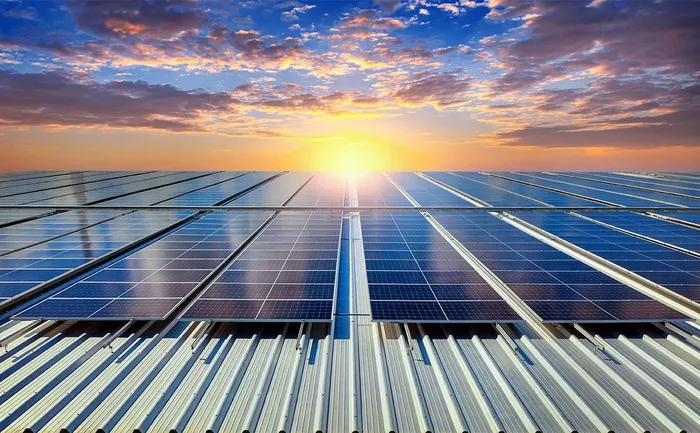SA punished for going solar
power

Looming international tariffs and Eskom’s Generation Capacity Charge could make solar unaffordable, even for those who already have it.
Image: Supplied
Desperate after years of relentless load shedding, South Africans were forced to turn to rooftop solar as a last line of defence against blackouts. But now they could be punished for the very solution that helped take pressure off the national grid.
The unwelcome return of load shedding this week has again highlighted the need for alternative sources of power. But looming international tariffs and the implementation of Eskom’s Generation Capacity Charge could make solar unaffordable, both for those still considering the switch, and those who’ve already invested in it.
Dr Andrew Dickson, an engineering expert, says there were initially incentive programmes to encourage people to invest in rooftop solar, Eskom was part of that drive.
“Now they're turning around and saying to people, you have to be registered. They're even changing tariff structures around that and here we’re not talking import tariffs, I’m talking kilowatt consumption costs.
It feels like a punishment. You had to make a plan just to try and live a normal life under abnormal circumstances, and now you're being told: well done, but actually, that’s a liability for you. And that seems very unfair from a consumer perspective,” said Dickson.
Eskom recently announced that the power system had improved and was in a “more reliable” position than in recent years. It’s promised that there won’t be load shedding this winter, if unplanned outages remain below 13GW.
“If outages increase to 15GW, load shedding would be limited to a maximum of 21 days out of 153 days at Stage 2,” it said on its website - a major improvement on last winter’s worst-case forecast of Stage 5.
Dickson believes those improvements are directly linked to rooftop solar, but says consumers have been blindsided by the costs now being forced onto them.
That includes Eskom’s new Retail Tariff Plan (RTP), which has already started affecting solar users. Since April, the power utility started implementing 20% of the Generation Capacity Charge (GCC), which has increased electricity bills for solar-equipped households that still rely on the grid for backup.
In addition, the International Trade Administration Commission (ITAC) has proposed duties of between 5% and 30% on 82 solar-related tariff codes which Dickson says could massively drive up the cost of new installations for homes and businesses.
“ITAC is saying the benefit is to protect local manufacturers and spur economic development,” he says, but most of the country’s solar panels come from overseas.
“If we impose these tariffs, it means any renewable projects already in planning will carry an extra 15 to 20% cost on raw materials which just means project rollouts will slow down, or budgets will overrun.”
Dickson has described it as another form of tax on something that citizens have come to rely on and warned that Eskom runs the risk of losing long-term revenue if people, especially those who can afford it, decide to go completely off-grid.
Melanie Veness, CEO of the Pietermaritzburg & Midlands Chamber of Business, painted a grim picture of the current situation and its impact on the private sector.
“We were promised load shedding was over, so it’s disappointing and frustrating to be dealing with it again. It’s devastating to the economy and we can’t afford that with such low growth and high unemployment.
Interrupted processes mean higher labour costs, less output, more rejects, late deliveries, and ultimately, losing the ability to compete globally. Eskom’s failure to provide reliable, affordable electricity has forced businesses to invest in alternatives. It would be disingenuous to now tax them for doing so.”
Socio-economic commentator Dr Bhasela Yalezo says it may be time to take legal action.
“For the economy to grow, we need sustainable energy, not what we’re getting from Eskom. President Ramaphosa told people to invest in solar, and even sell excess energy back to the grid. Now those people are being double charged. The problem is that Eskom still acts like a monopoly, and they’re unregulated. If this goes to court, we might at least get legal guidelines. If Eskom crosses the line, there’ll finally be some kind of recourse,” said Yalezo.